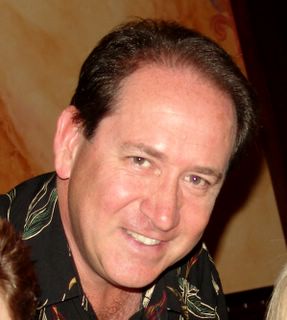Felt who? Watergate What?
Slate: What led you to leave the CIA?
Hunt: I found out the CIA was just infested with Democrats. I retired in '70. I got out as soon as I could. I wrote several books immediately thereafter.
Slate: I still don't understand how you get involved in Watergate later. Through the CIA?
Hunt: I had been a consultant to the White House. I greatly respected Nixon. When Chuck Colson [special counsel to Nixon] asked me to work for the administration, I said yes. Colson phoned one day and said, "I have a job you might be interested in." This was before Colson got religion.
Slate: How long were you in prison for the Watergate break-in?
Hunt: All told, 33 months.
Slate: That's a lot of time.
Hunt: It's a lot of time. And I've often said, what did I do?
Slate: Did you get a pardon?
Hunt: No. Never did. I'd applied for one, and there was no action taken, and I thought I'd just humiliate myself if I asked for a pardon.
--Howard Hunt Interview—Slate October 6, 2004
Jeff Wells’s always-intriguing blog Rigorous Intuition notes the Hunt interview as part of a description of why Watergate happened. His post gets somewhat convoluted about a hooker spy ring that needed to be covered up with the Watergate break-in as part of a CIA plot to side-track the powers-that-be. It’s another in a series of theories coming out since the confession by Mark Felt that he was the Deep Throat of Woodward and Bernstein’s All the President’s Men.
What was Watergate about, and why did “it” happen? Seems simple enough to answer. A president resigned to avoid impeachment—it must have been pretty important and a big deal. Then why are so many “experts” and “pundits” coming out with so many different reasons in the last few days, from mistrust of various intelligence agencies of each other, to over weaning power hunger by the administration, to greed and money? Or was it about all of this, and more?
The crimes committed under the umbrella of the term “Watergate” were re-directing huge sums of money into a coffer to provide an unbeatable machine to re-elect Nixon and company with absolute certainty. In fact, Nixon won every single state’s electoral votes except for Massachusetts in an utter landslide, so the machine worked very well after all.
But the sideline issues that permeated the senate hearings at the time, the press stories, and the strange cast of characters, including Howard Hunt and a bunch of expatriate anti-Castro Cubans, make Watergate a dilemma of an enigma that unlike the revelation of Felt as Deep Throat, will never be completely solved.
For instance, Nixon referred to “bay of Pigs” to Haldeman in Oval Office conversations that were infamously tape recorded and made part of the Watergate record. “Bay of Pigs,” the failed attempt to overthrow Castro under the Kennedy administration, was Nixon’s code name for the Kennedy assassination, according to Haldeman writing later in a book about Watergate. Nixon wanted the FBI to back off investigating Watergate because it might reveal more about the “Bay of Pigs,” or Kennedy assassination, one theory goes.
Howard Hunt is said to have been in Dallas the day Kennedy was shot, although he doesn’t want to admit it.
Nixon definitely was in Dallas that day. Could be a coincidence.
George Bush 41 was head of the Republican National Committee during the Watergate period and was one of the first cabinet officials to call for Nixon’s resignation. Then he was made head of the CIA under Ford. Is there a meaning to be found in this lineage?
The point is, what was Watergate, what has changed because of it, and is it important? Clearly Americans trust their government less since Watergate. That may be the only difference and it may be a good thing. It’s also possible that what was Watergate actually began years prior to Nixon, and continues to this day—the ambition for some to gain power and to keep it, and the corruption that great power generates.

No comments:
Post a Comment
Comments signed Anonymous will not be published.